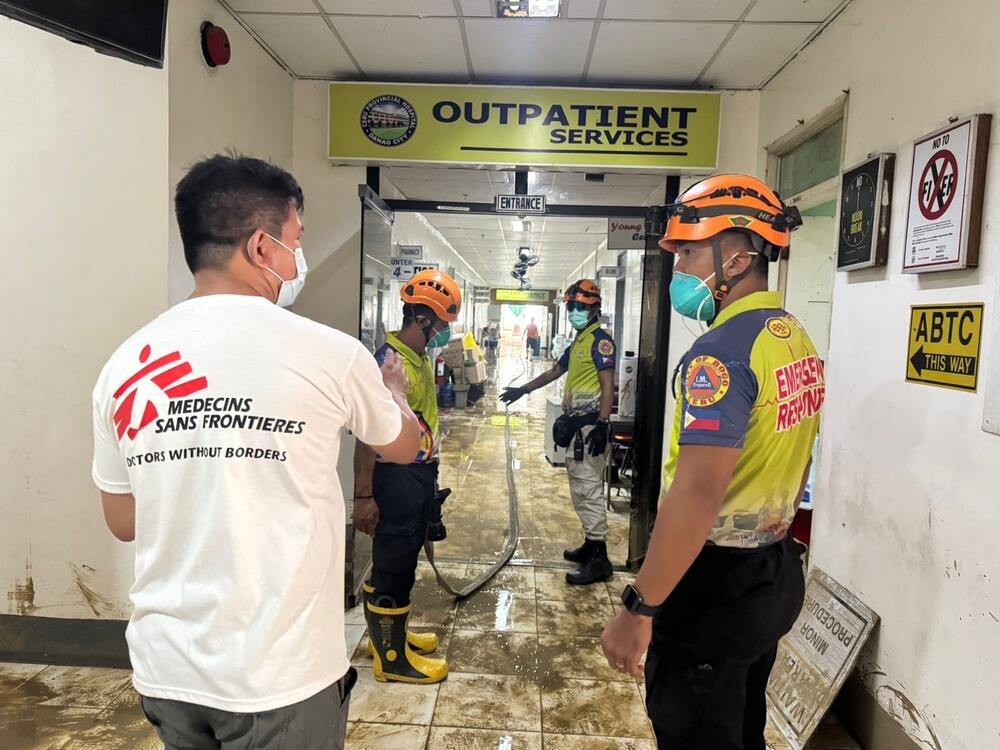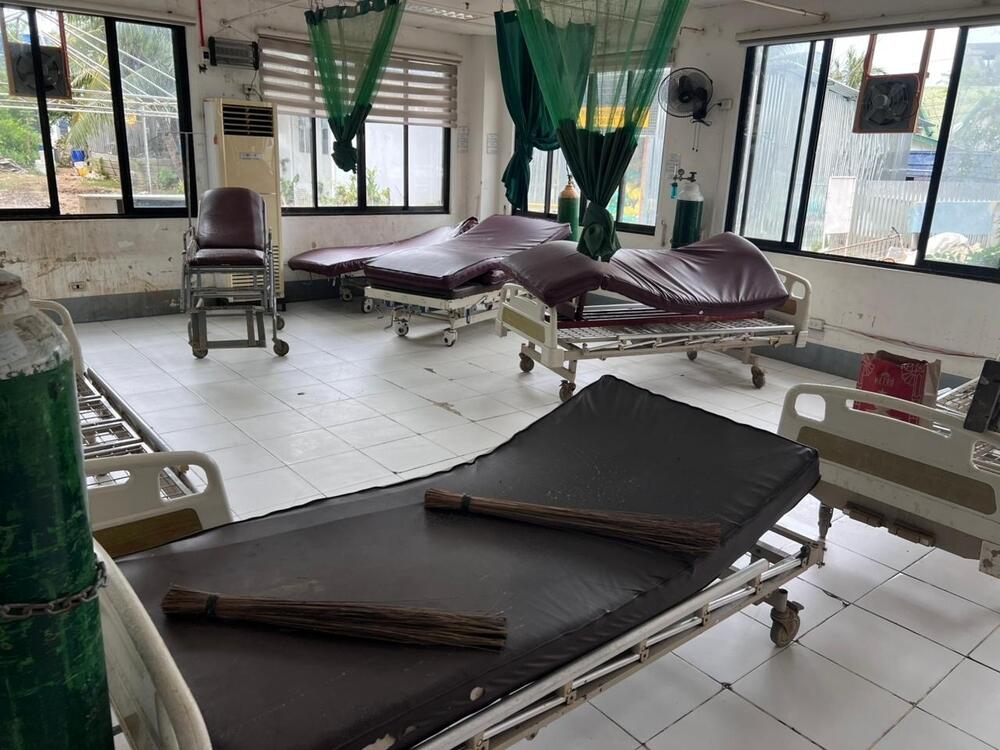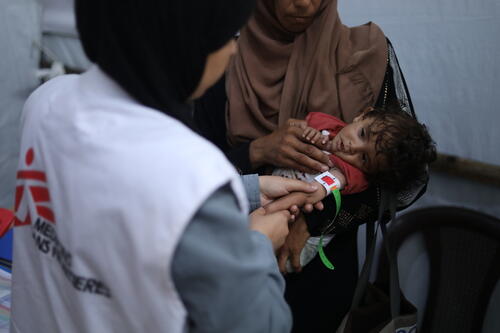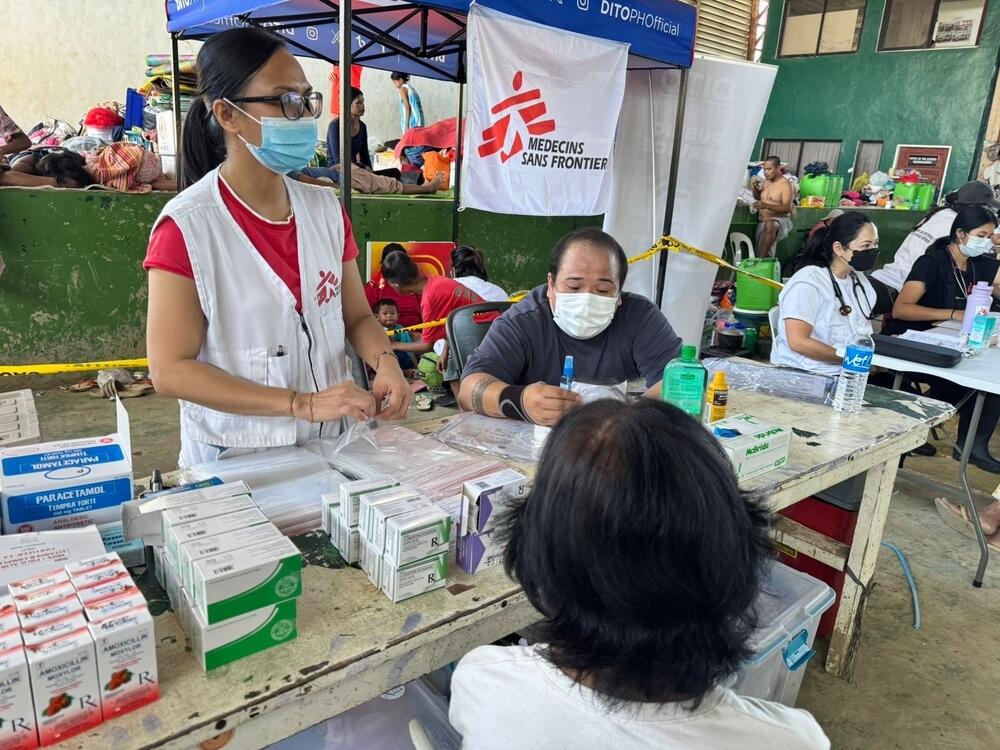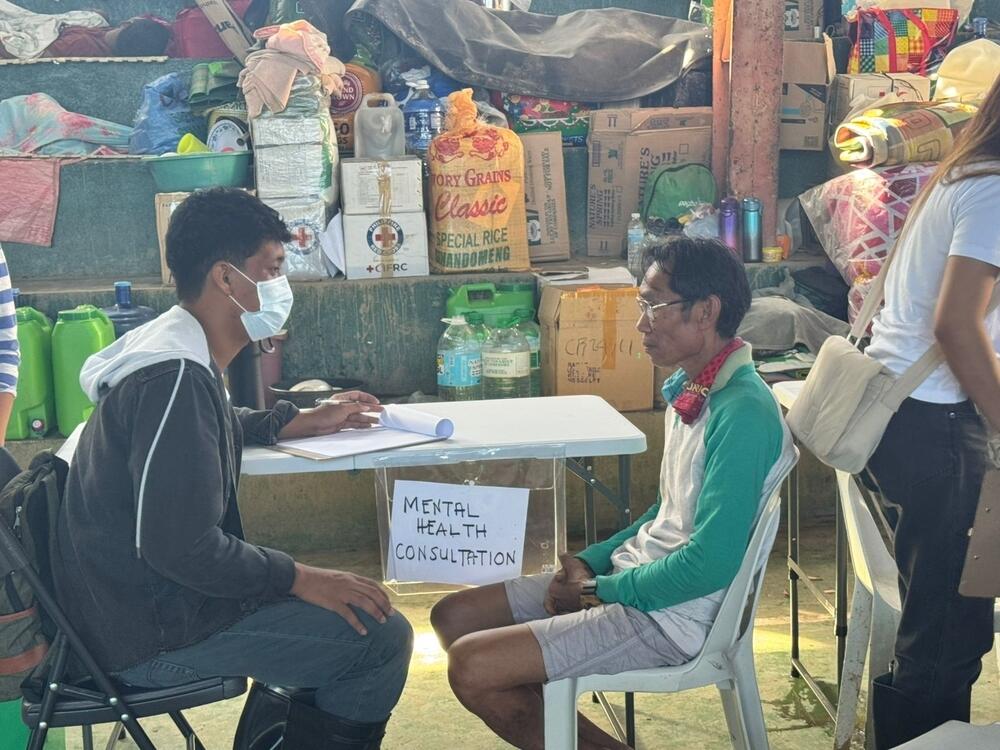In photos: MSF teams respond to Typhoon Kalmaegi
Typhoon Kalmaegi (locally known as Tino) has ravaged at least eight regions across the Philippines, displacing approximately 400,000 people. Médecins Sans Frontières / Doctors Without Borders (MSF) emergency teams are currently on the ground in Cebu province.
One of the strongest on record, the typhoon killed over 200 people when it struck the Philippines in the first days of November.
In the city of Danao, our teams have conducted deep cleaning operations to restore functionality to Cebu Provincial Hospital, which was severely affected by flooding and mud.
In collaboration with local authorities, teams cleaned critical areas of the hospital—including the emergency room, outpatient department, surgery room, isolation room, doctors’ quarters, and pharmacy—to restore safe and functional conditions for medical care. We also supported health authorities to restore two health centres in the city with deep cleaning operations.
As well as cleaning operations, MSF teams have visited several health facilities to donate medical supplies. These include doxycycline, an antibiotic for the prevention of leptospirosis, which is a bacterial infection that becomes a risk when places are flooded.
In Talisay city, MSF has launched a mobile clinic to provide essential medical and mental health services. On 12 November we saw more than 110 patients for medical consultations and psychosocial support.
In Compostela municipality, we distributed hygiene kits, jerrycans and sleeping kits to communities impacted by the typhoon and subsequent flooding. We will continue monitoring the situation and the needs of the many people affected, including surveillance of diseases with epidemic potential.
MSF and natural disasters
Catastrophic events such as earthquakes, cyclones or tsunamis can overwhelm entire communities, cities or regions within minutes.
Thousands of people may be killed and many more traumatised by the loss of family, friends and homes. However, while the disaster may occur in moments, the humanitarian consequences may last for months and even years.
Since 1971, MSF teams have taken life-saving emergency action in many of the most devastating events to hit the headlines.
